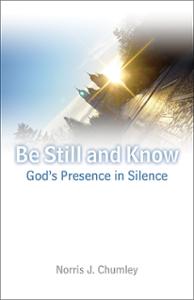A little over six years ago, my son was diagnosed with a rare form of cancer. I was devastated and initially feared for his life. My wife and I dropped everything and returned to Washington DC to accompany him and his wife of just three months while he was in the hospital receiving his first round of chemotherapy. I am a disciplined praying person: I meditate every morning and take a prayer walk of about an hour after my morning meditation. But, during those first few weeks, I had no words to describe how I felt – even to God.
As I took my first morning walk around the Georgetown University Hospital where my son was being treated, I initially felt the abyss of wordless despair and then, as I continued in my walk, words emerged from my heart. Indeed, it was the “prayer of the heart,” described in the Russian spiritual classic, The Way of the Pilgrim. These are words we often sang in the Kyrie:
Lord, have mercy upon me.
Christ have mercy upon me.
Lord have mercy upon me.
These sung words are a short form of the Orthodox, Kyrie:
Lord Jesus Christ,
Son of God.
Have mercy upon me
A sinner.
Sometimes I even shortened the prayer to – “Lord, have mercy” or simply “Mercy” – as my plea for God’s healing touch. I could not save my son’s life, but I could be an instrument of mercy and grace to him, his wife, and my equally despairing wife.
I did not choose these words. They came from a place deep in the heart, the place where the Holy Spirit intercedes for us in sighs too deep for words. (Romans 8:26-27)
 In the quiet of the morning, before the hospital shifts changed, the city awakened, and students headed to class, I crisscrossed the university campus with one prayer on my mind. In that prayer, I experienced what author Norris Chumley, in his new book Be Still and Know, describes as “God’s presence in silence.” In the stillness, I knew that God was here. God was more than a word, but the sustaining presence deeper than words in the fullness of silence. “Lord, have mercy. Christ, have mercy. Lord, have mercy.” I received the mercy for which I pled.
In the quiet of the morning, before the hospital shifts changed, the city awakened, and students headed to class, I crisscrossed the university campus with one prayer on my mind. In that prayer, I experienced what author Norris Chumley, in his new book Be Still and Know, describes as “God’s presence in silence.” In the stillness, I knew that God was here. God was more than a word, but the sustaining presence deeper than words in the fullness of silence. “Lord, have mercy. Christ, have mercy. Lord, have mercy.” I received the mercy for which I pled.
After two weeks in the hospital, it became clear that my son would probably survive. My prayer hymn changed to a song from my Baptist childhood:
Great is Thy faithfulness, O God my Father,
There is no shadow of turning with Thee;
Thou changest not, Thy compassions, they fail not
As Thou hast been Thou forever wilt be.Great is Thy faithfulness! Great is Thy faithfulness!
Morning by morning new mercies I see;
All I have needed Thy hand hath provided—
Great is Thy faithfulness, Lord, unto me!
I affirm the use of inclusive language and avoid strictly male language to describe God, especially in public worship. But, in those moments of despair and gratitude when words escaped me, I returned to the ancient words and the words of my childhood.
Six years have passed. My son is cancer free with two young sons of his own. I still pray these two prayers in times of challenge and gratitude. In the stillness of a short phrase, I feel God’s presence, joining ancient and future in a glorious present moment of grace, knowing with the monks described in Chumley’s Be Still and Know, that through all the trials and temptations of life, God will be my companion.
For more conversation on The Jesus Prayer, visit the Patheos Book Club on Be Still and Know here.













